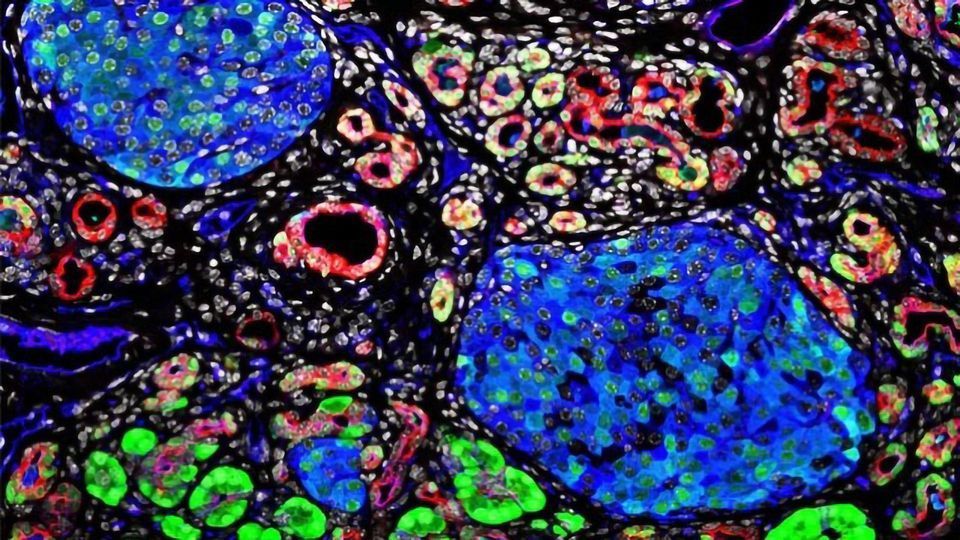A Sweet Surprise: Targeting Sugar-coated Proteins to Treat Pancreatitis

Complete the form below to unlock access to ALL audio articles.
CA19-9 – a complex sugar structure that coats many proteins, has now been linked to the transformation of pancreatitis to pancreatic cancer, according to a new study published in Science.
Using a mouse model, Dannielle D. Engle and colleagues have shown that elevated levels of CA19-9 causes inflammation to occur in the pancreas. Without a subsequent reduction in the levels of CA19-9, wound healing is hindered, causing a transformation in the pancreas that can fuel the development of pancreatic cancer.
Findings from the study indicate that in future it may be possible to therapeutically target CA19-9, by blocking the complex sugar molecule’s activity.
“Even though elevated levels of CA19-9 is bad, it represents a unique opportunity for a new therapeutic target,” explains Engle, in a recent video highlighting their research.
What is pancreatitis?
Pancreatitis is a condition with limited treatment options, that involves inflammation of the pancreas – a gland located in the upper abdomen. There are different types of pancreatitis – acute, chronic and hereditary.
Pancreatitis causes
Pancreatitis occurs when cells within the pancreas become irritated as a result of premature activation of digestive enzymes inside the pancreas, causing inflammation.
There are several causes of pancreatitis, including:
- Excessive, long-term alcohol consumption
- Gallstones
- Surgery or injury to the abdomen
- Smoking cigarettes
- Medications (drug-induced pancreatitis)
- A family history of the condition
- Hypercalcemia
- Infections
- Hypertriglyceridemia
- Pancreatic cancer
Investigating the role of CA19-9
CA19-9 is in the serum of 10–30% of patients with pancreatitis and 75% of patients with pancreatic cancer. Whilst CA19-9 is known to be a clinically useful biomarker for these conditions, until now knowledge of its exact role in pancreatic cancer and pancreatitis has been limited. Engle and team set out to gain a deeper understanding of CA19-9’s function, however their first task was to develop a model capable of recapitulating the elevated CA19-9 observed in humans. Wild-type mice naturally lack the enzyme required to generate CA19-9, therefore the team created a mouse model that could produce CA19-9, in addition to organoid models of pancreatic disease. The mice producing CA19-9 subsequently developed pancreatitis.
The team found that they were able to reverse CA19-9-mediated pancreatitis, and by using CA19-9 blocking antibodies it’s activity could be suppressed. “By targeting CA19-9 with antibodies in animal models, we were able to reduce the severity of pancreatitis and even prevent it from occurring,” says Engle, in a recent press release.
“Pancreatitis is required for developing pancreatic cancer, and we might be able to prevent that transition in patients with pancreatitis by targeting CA19-9,” says Engle. CA19-9 cooperates with the KrasG12D oncogene to produce aggressive pancreatic cancer.
The paper notes that: “Fully human CA19-9 antibodies have passed Phase 1A clinical trials PET-imaging of pancreatic cancer,” indicating that with the support of future studies it could be possible to rapidly translate CA19-9 targeted therapy to the clinic for the treatment of pancreatitis.
“It is a way of treating pancreatitis that we really never had before and represents a way of not just treating existing pancreatitis, but theoretically preventing it from occurring in patients at risk.” concludes Engle.
Types of pancreatitis
Reference: Dannielle D. Engle, et al. The Glycan CA19-9Promotes Pancreatitis and Pancreatic Cancer in Mice. Science (2019)


